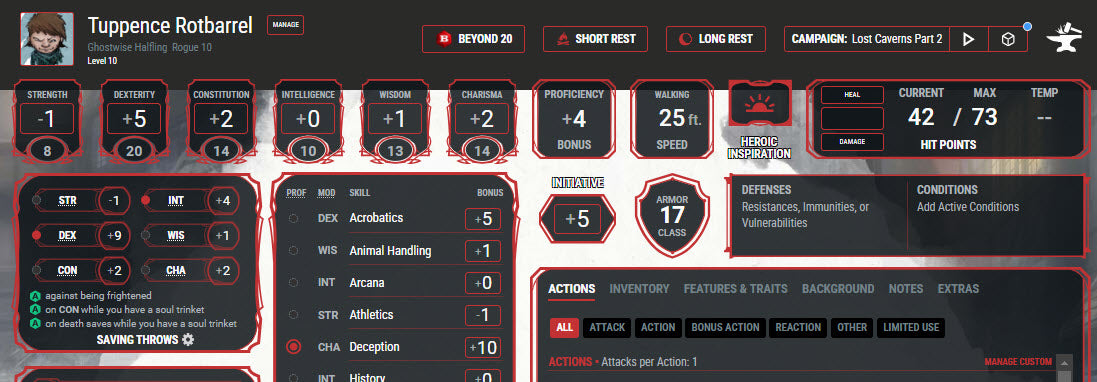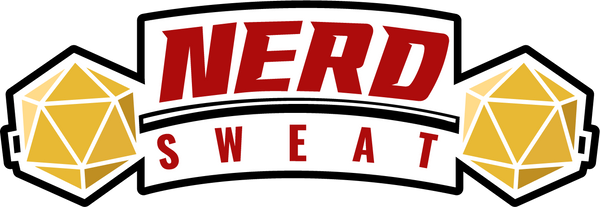
Common Mistakes New D&D Players Make (And How to Avoid Them)
Dungeons & Dragons (D&D) is a game filled with creativity, strategy, and camaraderie. But for new players, it can also be a bit overwhelming. It's easy to make mistakes when you’re first starting out, but with a little awareness, you can avoid common pitfalls and make the most of your D&D experience. In this blog post, we'll explore some of the most common mistakes new players make and offer tips on how to avoid them.
1. Overcomplicating Your First Character
The Mistake:
Many new players dive headfirst into character creation, trying to make the most unique, complex character possible. While creativity is encouraged, overly complicated characters can be difficult to play, especially when you're still learning the rules.
How to Avoid It:
Start simple. Choose a race and class combination that’s straightforward, like a human fighter or a dwarf cleric. As you get more comfortable with the game mechanics, you can experiment with more complex characters. Keep in mind that your character can grow and develop as the campaign progresses, so there’s no need to start with a fully fleshed-out backstory or intricate abilities.
Example:
Instead of creating a half-elf rogue with a tragic backstory, royal lineage, and a secret vendetta, try starting with a basic rogue who’s just looking for adventure. You can flesh out the details as you play and learn more about the world and your character.
2. Not Reading the Rules (Or Relying Too Heavily on Them)
The Mistake:
New players often either don’t read the rules at all or get bogged down by trying to follow them too closely. Both approaches can hinder the flow of the game and the enjoyment of everyone involved.
How to Avoid It:
Skim through the Player’s Handbook to get a general sense of the rules, but don’t stress about memorizing every detail. Focus on understanding the core mechanics like ability checks, combat, and spellcasting. Trust that your Dungeon Master (DM) will guide you through the rest.
Example:
Instead of stopping the game to look up every single rule, trust your DM to make quick decisions. You can always look up the rule later or ask your DM for clarification after the session.
Reference:
For a quick overview of the basic rules, check out D&D Beyond’s Basic Rules for an accessible guide.
3. Not Engaging with the Story or Other Players
The Mistake:
It’s easy to get caught up in the mechanics of the game and forget that D&D is, at its core, a collaborative storytelling experience. Focusing solely on dice rolls and combat can make the game feel more like a board game and less like an adventure.
How to Avoid It:
Engage with the story, your character, and the other players. Don’t be afraid to role-play your character’s reactions and make decisions based on their personality, even if it’s not the most strategic move. Interacting with other players and the world around you makes the game more immersive and fun.
Example:
If your character is a cautious wizard, don’t just announce your action in combat—describe how your character carefully considers their spell options before casting. Role-playing these moments adds depth to your character and enriches the game for everyone.
Resource:
For more role-playing tips, check out Critical Role’s Beginner’s Guide to Role-Playing, which provides insights from experienced players.
4. Trying to Be the Lone Wolf
The Mistake:
Some new players fall into the trap of trying to be the "lone wolf" hero who doesn’t rely on the party. While it might seem cool, D&D is a team game, and isolating yourself can disrupt the flow of the game and lessen the experience for everyone.
How to Avoid It:
Remember that teamwork is key in D&D. Your character should have reasons to cooperate with the rest of the party. Embrace the group dynamic, share the spotlight, and work together to overcome challenges.
Example:
Instead of sneaking off alone to fight a group of goblins, involve your party in the plan. Maybe your rogue can scout ahead, but rely on the fighter for backup and the wizard for support spells.
5. Forgetting to Have Fun
The Mistake:
D&D can be complex, and sometimes new players get so caught up in doing everything "right" that they forget to enjoy the game.
How to Avoid It:
Relax and have fun! D&D is a game of imagination and collaboration. Mistakes will happen, and that’s okay. Focus on enjoying the story and the time spent with your fellow players.
Example:
If you accidentally use the wrong spell or make a suboptimal move, don’t stress about it. Laugh it off and keep the adventure going. The most memorable moments often come from unexpected twists and turns.
Resource:
If you're struggling with perfectionism, check out Sly Flourish’s article on The Lazy Dungeon Master, which offers advice on embracing the unpredictability of the game.
Final Thoughts
Dungeons & Dragons is a game of creativity, collaboration, and adventure. By avoiding these common mistakes, you'll be well on your way to becoming a confident and capable player. Remember that everyone at the table is there to have fun, so don't be afraid to make mistakes and learn from them.
For more resources and guides, explore the vast content available on platforms like D&D Beyond and Roll20, where you can find tutorials, character-building tools, and community support to help you along your journey.
Happy adventuring!
